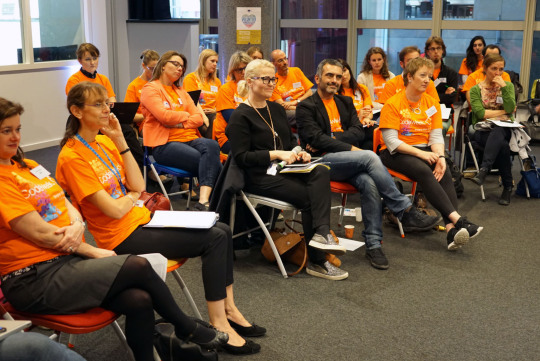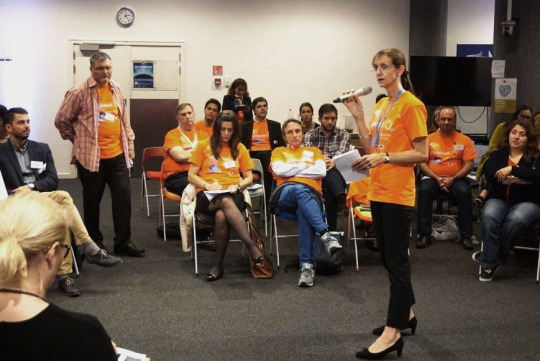EU Code Week – Keep up the momentum!
Publication date: October 3, 2016
With just two weeks until the annual Code Week, events are popping up on the map as we speak! Last week it was the Code Week Open Debate.
Last Tuesday I hosted the first ever Code Week open debate in Brussels. We discussed how to – after four successful years – bring Code Week to the next level and how to make every week a Code Week. We brought together the EU Code Week Ambassadors – volunteers who are mobilising people for programming events across Europe – with the Brussels coding constituency – clubs, organisations, teachers who code, libraries with coding corners, youth organisations and policy makers who promote digital skills on EU level.

From left to right: Kristen Doran, Claire Bury, Miapetra Kumpula-Natri, Alessandro Bogliolo and Ilona Kish.
It was a very interesting debate and I wanted to share with you some of the highlights:
Alessandro Bogliolo, Associate Professor at the University of Urbino in Italy, who now coordinates the programme, explained how coders and teachers can learn from each other. He has produced MOOCs, online tutorials, contests for schools which has been extremely popular at the University. Thousands of schools across Italy are now Code Week participants!
Miapetra Kumpula-Natri, MEP from Finland, explained the huge modernisation of education in her country, which introduced coding into its curriculum. She mentioned the key role of teachers but also mentioned that parents need support to understand what coding is about – so they can help their children as they do in other subjects. She believes that Europe cannot continue to only use Asian products and American programmes. We need to upskill, enable people and demystify IT.
Kristen Doran, Senior HR Business partner at SAP explained the idea behind Africa Code Week. Training teachers across the continent so that they can pass on the knowledge to the future
generation. This approach is now being expanded to Refugee Code Week in camps in Jordan, Syria and Egypt. This also helps to obtain the skills needed for inclusion policies – programmes like Autism@Work provides SAP with great professionals by way of small adaptations of work place conditions. We should ask ourselves – are we doing the right thing as mothers and fathers? Are we active? Coding in schools may run the risk of being a “boring lesson”, however, this is a straightforward way of giving everyone the opportunity to learn.
Public actors can play a great role – Ilona Kish from EU Public Libraries reminded us how, thanks to the digitisation of these institutions, one million users can get free access to the internet at Public Libraries. That means, access for everybody, including those who cannot afford it.
This journey of modernisation is very important for the unemployed, the low-skilled and otherwise excluded.

Claire Bury.
Making digital easy and making programming fun will contribute to the ever-growing interest in this sector.
So, Code Week has learnt to run whilst it was still learning to walk. Keep up the momentum!
Thanks to all who participated and colleagues for the excellent event!
Claire Bury,
Deputy Director General of the European Commission’s DG Communications Networks,
Content & Technology
You can see a recording from the debate here.


